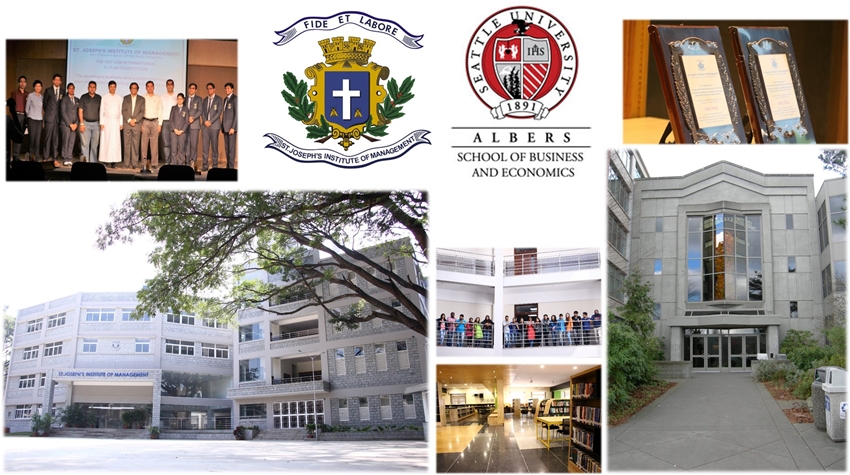B-Plan Competition 2018 at SJIM
SJIM-Albers International B-Plan Competition
2018: The world finds itself more connected and informed than ever before. And yet, this is the
very environment that allows fake news to flourish!
Would you like to take part in a competition that is trying to find a solution to this paradox?
Would you like to collaborate across continents on an impactful assignment?
St. Joseph’s Institute of Management (SJIM) welcomes students from the Albers School of
Business (Seattle University) to join hands with students at SJIM to create the best business plan
to solve this crucial problem affecting all countries.
You will be part of a virtual team, collaborating over the internet and harnessing two countries’
technical and social expertise towards a crucial global problem.
The business plans of all participating teams will be judged by prominent and successful
European jury members. The three finalist teams will get to present and debate their case in front
of a distinguished Indian panel.
So join us today to win this unique two-schools two-nations b-plan competition!
Competition Topic
In the last decade, connecting the world via smartphones has given rise to an insidious phenomenon, popularly called “fake news”.
In India, at least 20 people have been lynched to death based on fake news circulated via WhatsApp, including a horrific case in Bangalore, the heart of India’s IT revolution. Elsewhere in the country, fake news has been cited as the cause for increasing superstition. In the United States, fake news has resulted in increased vigilantism. In both countries, the role of fake news in altering perceptions during elections is being debated. Fake news has not spared other countries either. In fact, recent estimates believe that fake news is actually “crowding out” real news.
Fact checking agencies – once touted as the solution to fake news – are struggling to deal with new forms of circulation. This is because these agencies can only check online data, thereby excluding the huge volume of fake news proliferating through consumer-to-consumer communication technologies (like WhatsApp or Facebook) from any sort of check. Also, a large volume of fake news is spread through pictorial memes and videos that cannot be checked.
Big tech companies like Facebook and Google are trying to regulate the flow of information through their channels of control. This is even being encouraged by governments across the world. As a result, these large corporations are slowly becoming the gatekeepers of ‘real’ news/information. While this seems like a step in the right direction, it also disturbs the delicate check-and-balance system that society has developed – the “press” was supposed to be an entity that was not on the side of governments and not on the side of corporations, so that people would have access to the truth.
In the past, our founding fathers and their descendants, both in India and the United States, have found admirable working solutions to the big challenges of their time. Fake news is our generation’s test. We challenge you to work with young people from another country to counteract this test.
Working in virtual teams, can you develop a financially sustainable and technologically feasible and scalable business idea to combat the proliferation of fake news?
Competition Demands
Students of all programs at Albers and SJIM are eligible to join.
The only infrastructure you need is a data connection! Upon registration, Albers students and SJIM students will be assigned to teams. Ideally, each team will comprise of two students from each school. However, team sizes might vary based on the number of registrations. Albers students will be given SJIM email addresses and access to SJIM’s online educational infrastructure, and may use these and other apps to collaborate with their SJIM team members.
Each team has about a month to formulate a 7-10 page business plan, and so the demand on each individual’s time may be 1-2 hours a week, over a four week period.
For the first round, the business plan should be submitted in a doc/docx/pdf format. All submissions will be passed through anti-plagiarism software. The document should use Times New Roman 12-point font with 1-inch margins all round. The length of the document must be a maximum of 10 pages, excluding any appendices. Judges will read, but not evaluate, any appendices. The required structure of the business plan is below.
❑ Cover page, which includes the name of the proposed company and the names of the team members.
❑ The Idea: one page dedicated to explaining the idea (or your solution) in brief.
❑ The People: The men and women who will be starting and running the venture, their roles, details about any outside parties providing key services or important resources, and so on.
❑ The Opportunity: A profile of the business itself – what it will sell and to whom, whether the business can grow and how fast, what its economics are, who and what stand in the way of success.
❑ The Context: The bigger picture – the regulatory environment, demographic trends, technological trends and developments, and any other factor that will inevitably change but cannot be controlled by you (the entrepreneur). How will you be prepared to deal with the inevitable change in the environment?
❑ Risk and Reward: An assessment of everything that can go wrong and right, and a discussion of how the entrepreneurial team can respond.
❑ Appendices, if any
The structure listed above is adapted from an article by William Sahlman, Baker Foundation Professor of Business Administration (Emeritus) at Harvard Business School. All teams are encouraged to read this short article, which is available here or here .
For the final round, the business plan should be submitted in a ppt/pptx format. The structure of the presentation will follow the broad structure of the written plan. Each team will have 15 minutes to present their plan. After all teams have presented their plan, the judges will give each team a set of questions to answer. All teams will get 10 minutes to discuss between themselves, including with the Albers team members via the internet. Thereafter, the teams will have to give their answers to the judges.
Competition Judges
For the First Round:
Since the teams will comprise of American and Indian students, it apt that, for the first round of this competition, we have judges from Europe who are experts on this year’s competition topic. This multi-member panel of judges will shortlist the three best business plans for the final.
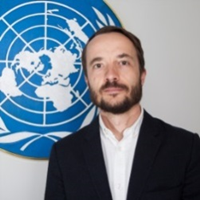
Pelle Lütken
Pelle is a Policy Specialist on Governance and Peacebuilding with UNDP. He supports countries in developing Responsive and Accountable Institutions at both national and local level. Pelle has worked in Copenhagen, Geneva, Damascus, Amman and New York over the past 12 years. His experience spans across sectors with a shared focus on corporate social responsibility in the private sector, international organisations such as the UNDP and ILO, and civil society projects. This mix of experiences reflects his belief in forming a platform of multistakeholder partnerships to improve living conditions in the most fragile and vulnerable areas of the world. Pelle holds a postgraduate degree in corporate social responsibility from the University of Geneva.
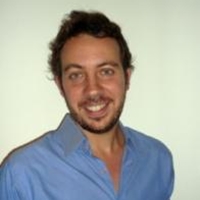
Emanuele Sapienza
Emanuele currently serves as Global Policy Specialist in UNDP’s Inclusive Political Processes Team. In this capacity, he oversees UNDP’s policy work on civic engagement as well as the Technical Secretariats of the United Nations Partnership on the Rights of Persons with Disabilities and of the United Nations Indigenous Peoples Partnership. Emanuele has 17 years of experience working on issues of inclusion and participation in different parts of the UN system. During this time, he served with UNDP’s Poverty Practice in New York and carried out assignments with UNDP Country Offices in Nepal and Sri Lanka, as well as work at regional level in the Caribbean and West Africa. Furthermore, Emanuele served as an External Relations Officer (Board Relations) with UNAIDS in Geneva. Most recently, Emanuele has been involved in work that aims to keep journalists safe and which focuses on the importance of the media's role in peace and development. Emanuele holds a Degree of Dottore (cum laude) in Economic and Social Disciplines (Bocconi University, Milan, Italy) and a Master’s of Science in Development Management (Center for Complexity and Change, Open University, UK). Before joining the United Nations, he conducted research work with the Italian Embassy in Egypt and the Italian Centre for Peace in the Middle East.
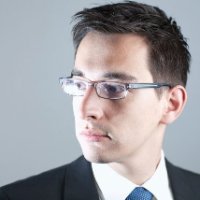
Dr. Florian Loebermann
He is a venture capitalist, and is currently Head of Corporate Venturing at Altana AG. Prior to this, he was Partner at Munich Venture Partners. Dr. Loebermann has a number of publications in reputed journals to his name. He holds an MBA from the Catholic University at Eichstätt-Ingolstadt, and a doctorate in organic chemistry from LMU Munich. He has won several awards including the Dr. Klaus Römer Stiftung Award for Excellent Research and the Novartis Graduate Fellowship in Organic Chemistry, and was finalist at the Reaxys/ Elsevier PhD Prize 2011. Dr. Loebermann is also active in the jury of the Munich business plan competition.
For the Final Round:
The final round will involve finalists presenting their b-plans to a multi-member panel of judges from India. Each of these judges will bring their expertise to bear at this competition. At the end of this round, the best business plan will be chosen.
Our judges include…
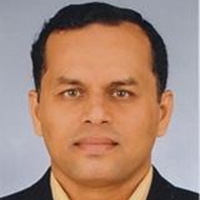
Rev. Dr. Richard Rego SJ
Academically oriented and passionate about teaching, Rev. Dr. Rego is the Director of the SJC Research Center and Associate Professor at St. Joseph’s College, Bangalore. He holds a M.S. Communication from Bangalore University and a M.A. from University of Warwick, UK. Rev. Dr. Rego obtained a PhD from Pune University, specializing in the area of Film & Television Studies, Media Studies and Journalism. He has also been a visiting scholar at the University of Oxford, UK. Rev. Dr. Rego is currently focusing on teaching and research, with special focus on student research in communication.
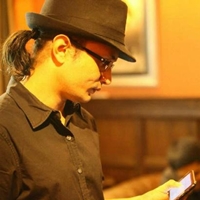
Samir Krishnamurti
Samir is the Editor-in-chief at MetaFact and the Research Director at Global Security Centre in Delhi. His primary research at GSC includes the areas of foreign policy, security based research, counter-terrorism, and intelligence analysis. From Bangalore, but based primarily in New Delhi, he has been a researcher for practically his entire professional career. The diverse fields he has worked in include public health, international migration, international relations, national security, and historical research. Samir holds a post-graduate degree in Arts, Political International Studies from the School of International Studies, Jawaharlal Nehru University, New Delhi. His most recent work involves the use of artificial intelligence to aid in fact-checking for large media corporations.
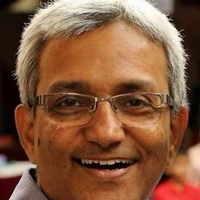
Sujit John
Mr. Sujit is the Business Editor, The Times of India (Bangalore). He has been with the newspaper for almost two decades. He has been tracking business and technology for several years as a journalist. He writes for The Times of India on enterprise and consumer technologies, new trends in this sector, and on their impact in society. In addition to being in charge of the business pages of TOI in Bangalore, he has been overseeing the weekly technology page as well. Sujit comes from a strong educational background in Economics (BA, MA, M.Phil).
Deadlines
| 01 Oct 2018 | The competition opens for registration |
|---|---|
| 14 Oct 2018 | All SJIM students who wish to participate must register for the competition by this date |
| 18 Oct 2018 | All Seattle University students who wish to participate must register for the competition by this date. Register here. |
| 25 Nov 2018 | All teams must submit a softcopy of their b-plans via email to bplan@sjim.edu.in |
| 03 Jan 2019 | Announcement of the three finalist teams on this webpage |
| 13 Jan 2019 | All finalists must submit their presentation via email to bplan@sjim.edu.in |
| 19 Jan 2019 | Live presentation by the finalists to a panel of judges |
Finalist Teams
The results from the European Jury are in, and the best three teams are:
| Finalist Team 1 | Finalist Team 2 | Finalist Team 3 |
| Bosco Sylvester | Anish Deodhar | Glen Clement Dally |
| Brendan Carlton D'Sa | Gokulan N T | Kristen Teramae |
| Keisha Lugito | Mohamed Rizwan | Lishma Maria DSouza |
| Kyle Yoo | Neha Roheira | Nikita V Ghatikar |
| Neil Jerome | Tauro Preetha Devi | Sandhya M. Rayer |
How to Join?
Please register by filling up this form: https://goo.gl/forms/wzc33f9atVF4w1UA2. You will then receive an email a couple of days after the registration deadline, informing you of your team members.
Albers students: please contact Ms. Amelia Marckworth (marckwor@seattleu.edu) if you have any concerns or issues.
SJIM students: please contact Dr. Caren Rodrigues (caren@sjim.edu.in) or Dr. Anup Krishnamurthy (anup@sjim.edu.in) if you have any concerns or issues.
If you have any other questions, please do email us at bplan@sjim.edu.in
Read about past b-plan competitions here:
